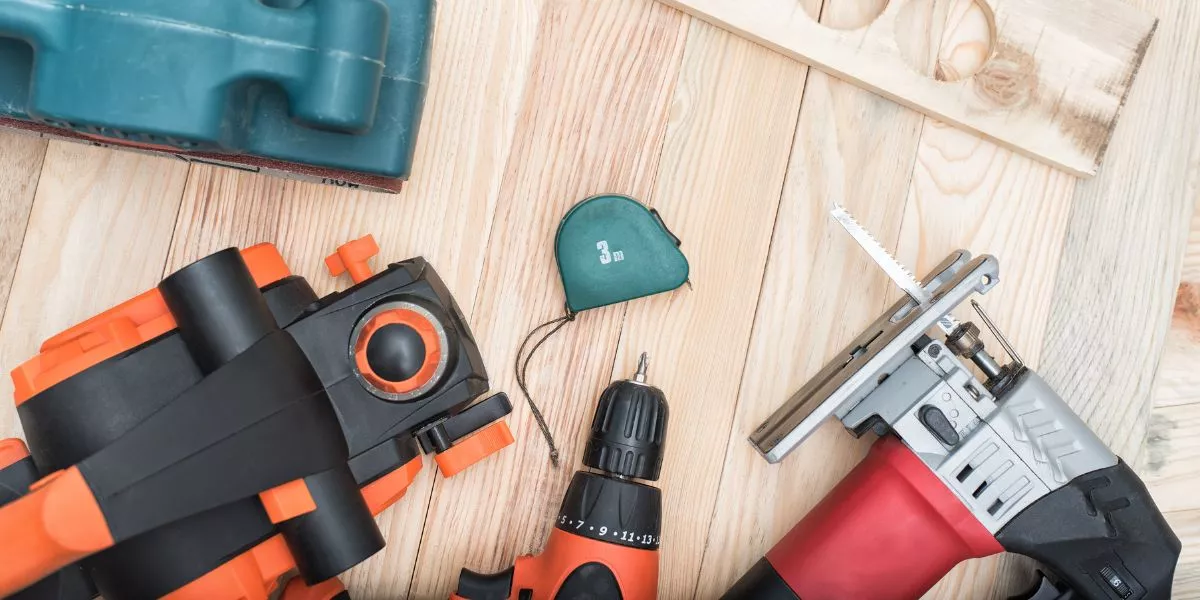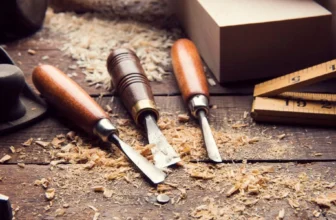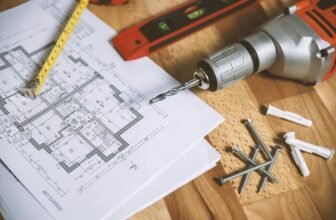
If you're just starting out in woodworking and want to stick to a budget, knowing which tools to invest in is crucial. You'll need reliable hand tools like a decent saw and hammer, along with a few power tools that won't break the bank. But how do you choose the right options without overspending? Let's explore the essential tools that can set you up for success without draining your wallet.
Essential Hand Tools for Beginners
When you're starting out in woodworking, having the right hand tools can make all the difference in your projects.
A reliable hand saw is essential for making precise cuts, while a chisel set allows you to shape and refine your work.
Don't forget a good quality hammer; it's indispensable for driving nails or assembling pieces.
A tape measure ensures accuracy in your dimensions, and a square helps you keep everything aligned.
A hand plane can smooth surfaces, making your projects look professional.
Finally, invest in a sturdy workbench to provide a solid foundation for your work.
With these essential hand tools in your arsenal, you'll be well-equipped to tackle a variety of woodworking tasks and bring your creative visions to life.
Affordable Power Tools to Consider
Building on your collection of hand tools, adding some affordable power tools can significantly enhance your woodworking capabilities.
A compact router is a fantastic addition, perfect for edge shaping and creating decorative profiles. Consider a budget-friendly jigsaw, which allows you to make curved cuts with ease.
A circular saw is another essential tool, great for ripping sheets of plywood or making straight cuts quickly. Don't overlook a drill/driver combo; it's invaluable for both drilling holes and driving screws.
Lastly, a random orbit sander will help you achieve a smooth finish on your projects.
Must-Have Safety Equipment
While diving into woodworking, prioritizing safety equipment is crucial to protect yourself from potential hazards.
First, invest in a quality pair of safety goggles to shield your eyes from flying debris. Hearing protection, like earplugs or earmuffs, is essential when using loud power tools.
Don't forget a dust mask or respirator to guard against inhaling harmful wood particles. A sturdy pair of work gloves will protect your hands from splinters and cuts, while a solid pair of steel-toed boots can help prevent foot injuries.
Lastly, consider a first aid kit for minor accidents.
Tips for Buying Used Tools on a Budget
If you're looking to save money on woodworking tools without sacrificing quality, buying used tools can be a smart choice.
Start by researching the tools you need, so you know their market value. Check local classifieds, online marketplaces, and garage sales for good deals.
Always inspect the tools in person when possible; look for signs of rust, wear, or damage. Ask the seller about the tool's history and usage.
Don't hesitate to negotiate the price—many sellers expect it. If you're unsure about a tool's condition, seek advice from experienced woodworkers.
Finally, consider buying from reputable sources or second-hand stores that offer some form of warranty. This way, you can build your workshop without breaking the bank.
Conclusion
In conclusion, starting your woodworking journey on a budget is totally doable with the right tools. Focus on essential hand tools like a reliable saw, hammer, and chisels, and consider affordable power tools like a jigsaw and drill/driver combo to expand your capabilities. Don't forget safety gear to keep yourself protected. By being smart about your purchases, including looking for used tools, you can enjoy woodworking without spending a fortune. Happy crafting!




